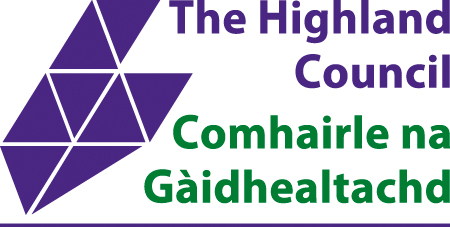Accounts Commission: Highland Council must focus on delivering its ambitions for the region

An ambitious plan to improve transport, roads and buildings, as well as a greater shift to using digital to deliver services, has the potential to transform the Highland Council’s services over the next 20 years.
Delivering its capital programme could prove challenging. Borrowing costs are high compared to the Scottish average. Councillors and senior officers need to be confident these plans are affordable.
In its latest report on the Highland Council, the Accounts Commission says the council has worked hard to close recent budget gaps. But its reliance on reserves and other flexible financial approaches in recent years isn’t sustainable. The council’s recent budget recognises this and only proposes the use of earmarked reserves for 2025/26.
Now the council needs to focus on delivery of its new plans and strategies to address its transformation ambitions and meet demand pressures, especially in areas like adult social care. With some services now improving at a slower rate than other councils, the council needs to use data and insight to ensure plans deliver on the promised improvements. This includes having a workforce with the necessary digital skills and capacity to deliver on the council’s ambitions.
Jo Armstrong, Chair of the Accounts Commission, said: “The Highland Council is benefitting from a culture of transformation, and we’re pleased to see progress since we last reported in 2020. Now challenges to making savings lie ahead – its vital that the council’s workforce, digital and IT strategies are developed, embedded and monitored.
“The pace at which some services are improving is now slower compared to other councils. Using robust data, the council needs to keep things moving forward and look for new ways to improve. Communities and staff must continue to be an integral part of the conversation to determine the future of council priorities and services.”
The Highland Council has welcomed the positive Accounts Commission Best Value Report and acknowledges the need for transformation at pace.
Convener of the council, Councillor Bill Lobban, added: “The council notes the recent report by the Accounts Commission which we consider broadly positive. In particular, we note the comments that the Council has significantly improved since 2020.
“We also note the positive comments in the report about the ways in which Highland Council is taking steps to transform its delivery of services.”
In particular, Highland Council has set a budget for 2025 – 2026 which uses zero reserves to fill its revenue gap. In fact, the £12.9m of additional savings that were approved will enable strategic investment of £14m in energy and transport. This is a major step forward and it is positive that this has been recognised on a number of occasions, including in this report, by the Accounts Commission.
The elected members of Highland Council have been prepared to make tough decisions, and it is positive that the Commission has recognised the strong relationships between councillors and officers as being a feature of the organisation.
When the Highland Investment Plan was approved by council in May last year, the report included details of the processes for its funding whilst ensuring that the Plan remains affordable, prudent and sustainable. This approach is considered necessary in order to transform the council’s assets and enable the improvement of services delivered across the Highlands.
The council has selected 31 of the 107 Local Government Benchmarking Framework indicators to judge its performance improvement by and can document a process of continual improvement. This is in accordance with advice from Audit Scotland which is that councils should be selective in what they aim to improve, otherwise they can lose strategic focus. These improvements are across all services areas and show a positive trajectory. It should be noted that with such a large geographical expanse to operate in, and with a dispersed population in rural areas, there is probably nowhere in the UK which faces the same level of challenge in delivering services as experienced in Highland.
There are findings for Highland Council to take on board, which will be reported to a future meeting of the council. One of these relates to historic levels of borrowing, which will continue to be monitored as a means of sustaining future investment.







